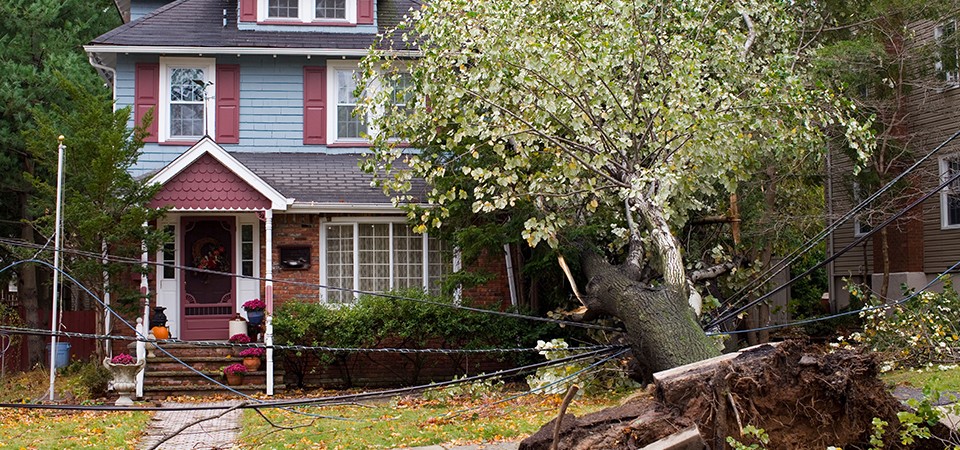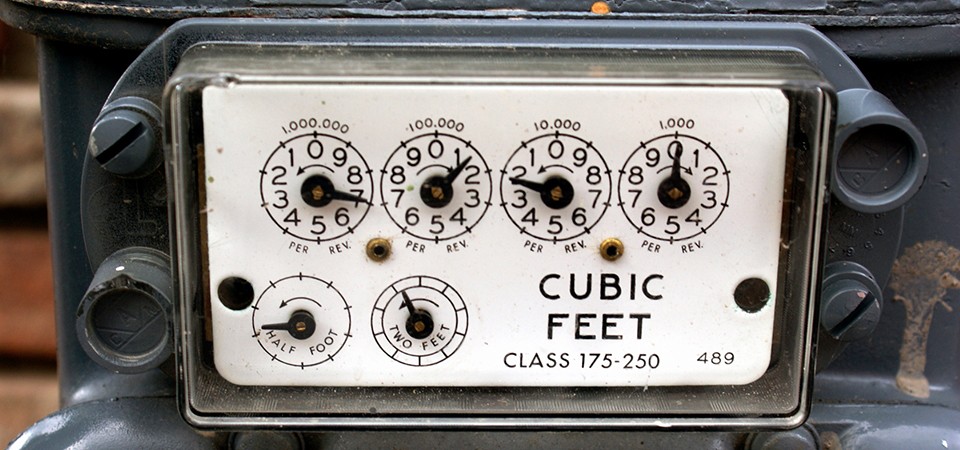Severe Weather
Winter Safety Tips
The safety of our customers and communities is our highest priority. That’s why at all times, including when severe winter weather events related to snow and ice occur, we strongly advise customers to adhere to the following guidelines associated with natural gas meter and appliance venting safety:
Appliance Safety
- Never use natural gas appliances, such as ovens or the burners on a stove, to heat your homes or businesses.
- Make sure your heating system, water heater and any other natural gas appliances are serviced and inspected annually by a qualified licensed professional.
- Do not use any defective natural gas appliance until it has been inspected, serviced and determined to be safe by a qualified plumber or heating, ventilation and air conditioning (HVAC) professional.
Smoke and Carbon Monoxide Safety
- Smoke and CO alarms should be replaced every 10 years.
- Carbon monoxide gas is colorless, odorless and tasteless. Keep your home safe by installing a CO detector on each level of your home, especially near bedrooms.
- To ensure the safe, proper operation of natural gas appliances, such as a furnace or water heater, and to prevent the potentially hazardous buildup of carbon monoxide within your home or business, ensure that outdoor vent openings and air intakes are not obstructed by snow or ice.
- If you smell natural gas or suspect carbon monoxide is present in your home or business, immediately leave the area and call 911 or our emergency number (1-866-643-4170) from a safe location.
- Seek medical attention immediately if anyone in your home or business experiences possible symptoms of carbon monoxide poisoning, such as headache, dizziness, fatigue, nausea and vomiting.
Meter and Vent Safety
- Know where your natural gas meter is located.
- If you have a high-efficiency furnace, power-vented water heater or other natural gas appliances that vent out the side of your home, remember to keep the vent pipe clear of ice and snow.
- Following a weather emergency, ensure the gas meter is visible and the area surrounding the meter is free of trash and debris. Mechanical equipment used after the storm to clean up a location may damage the meter if it is hidden.
- Exercise caution removing snow or ice from your natural gas vent or meter assembly. Use your hands or a broom, not a shovel, to brush away snow or ice from your meter and regulator. Shovels and other tools can damage the equipment.
- Never kick or hit your gas meter or its piping with a hammer or any hard object to break away built-up snow or ice.
- Remove hanging icicles to prevent dripping water from refreezing on your meter or vent. • Never shovel snow up against your meter or vent or let excessive snow cover it.
- If a natural gas meter is damaged or underground gas line is exposed, immediately leave the area and call 911 or our 24-hour emergency response number (1-866-643-4170) from a safe location.
Detecting Gas Leaks
- If you smell the rotten egg odor that is often associated with natural gas or suspect carbon monoxide is present, immediately leave the affected area and call 911 or the 24-hour emergency response line (1-866-643-4170) from a safe location.
- Never try to identify the source of a leak yourself.
- If the odor of natural gas is present, do not use a telephone or cellphone in the area of the odor. Do not turn light switches on or off. Do not operate any appliance or do anything that might cause a spark, such as lighting a match.
Damage Prevention
- Heavy snow and ice may weigh down power lines and tree limbs, causing them to fall. If a natural gas meter is damaged or underground gas line is exposed, immediately leave the area and call 911 or the 24-hour emergency response line (1-866-643-4170) from a safe location.
- Exercise caution removing snow or ice from your natural gas meter assembly. Use your hands or a broom, not a shovel, to brush away snow or ice from your meter and regulator. Never kick or hit your gas meter or its piping with a hammer or any hard object to break away built-up snow or ice.
Energy Efficiency
- Chattanooga Gas is is always looking for new ways to reduce costs and drive efficiencies to save money for its customers.
- Energy efficiency tools and resources give our customers more control over their energy consumption and bill. Some of those efficiencies can start in the home – little changes can add up to big savings with these weatherization tips:
- Regularly replace air and furnace filters; most filters should be cleaned or replaced every 60-90 days. A clean filter will allow the system to run more efficiently.
- Open window coverings during the day to allow sunlight to heat your home naturally, and close curtains at night to reduce the chill from cold windows.
- Keep furniture, drapes, stuffed animals and other objects away from heating sources.
- Adjust timer controls and programmable thermostats. Some older thermostats may not have an internal clock and need to be adjusted manually.
- Caulk and weather-strip drafty doors and windows. Use a heavy-duty, clear plastic sheet on a frame or tape clear plastic film to the inside of window frames during cold winter months drafts.
Before the Storm
Losing natural gas service during severe weather and power outages is rare because pipe infrastructure is below ground. However, there are several safety precautions customers should take to keep you and your community safe.
- Customers are encouraged to know the location of their natural gas meter.
- Chattanooga Gas advises customers to leave their gas meter on to maintain proper pressure in the gas piping within their homes or businesses and to prevent water from entering the lines should flooding occur. Most gas appliances have safety valves that shut off the flow of gas automatically if the pilot light goes out.
- Your natural gas service should operate uninterrupted throughout the storm. Only Chattanooga Gas or emergency personnel should turn the valve off. In cases of severe lightning, customers might want to unplug natural gas appliances to avoid possible electrical damage.
- Customers are urged to report a natural gas emergency to the Chattanooga Gas 24-hour emergency response line at 866.643.4170. The damage assessment and restoration process begins once the storm has passed, and it’s safe for our crews to proceed with gathering information and determining the extent of the service needs in the affected areas.

During/Immediately After the Storm
- Natural gas is injected with a chemical odorant called mercaptan, which many people equate to that of a distinctive “rotten egg” type scent. If the odor of gas is present when you return to your home, immediately leave the affected area and call our 24-hour emergency response line, at 866.643.4170 from a safe location. Residents should never try to identify the source of a leak themselves.
- If you smell gas, avoid using any sources of ignition, such as cell phones, cigarettes, matches, flashlights, electronic devices, motorized vehicles, light switches or landline as natural gas can ignite from a spark, possibly causing a fire or explosion.
- If flooding occurs at a residence or business and the gas appliances are or have been submerged under water, do not try to operate the appliances.
- During clean up and repair after a storm avoid causing damage to the gas lines by calling 811 before digging. This also pertains to removing downed trees as they can become entangled with natural gas lines.
- Following a weather emergency, ensure the gas meter is visible, and the area surrounding the meter is free of trash and debris. Mechanical equipment used after the storm to clean up a location may damage an unseen meter. If a natural gas meter is damaged or gas line is exposed, immediately leave the area and call our 24-hour emergency response number at 866.643.4170.
If your gas service was interrupted as a result of a severe storm, restoration time depends on when water recedes in flooded areas and customers’ homes and businesses are free of standing water, and when Chattanooga Gas personnel can safely enter homes and businesses, and appliances are easily accessible by technicians.





